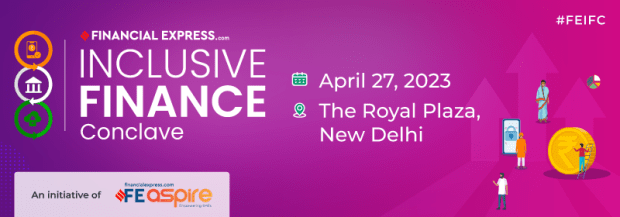By Arun Poojari
Sustainability for MSMEs: In 2015, the United Nations (UN) universally adopted a set of 17 sustainable goals intending to end poverty, minimise environmental impact, and ensure peace and prosperity by 2030. Micro, Small, and Medium enterprises (MSMEs) and small businesses play a crucial role in achieving these sustainable goals, as MSMEs and small businesses are one of the primary drivers of employment, reducing poverty and accelerating economic growth.
As per the latest reports by the Udyam portal, in India, over 9.31 crore people, including 2.18 crore women, are engaged in about 1.28 crore registered MSME enterprises. The government intends to add about five crore jobs in the MSME sector by 2025. MSMEs also play a critical role in closing the gender gap, ensuring effective women’s participation in the economic activities of society.
Despite significant contributions from small businesses and MSMEs to the achievement of UN-led sustainable goals, MSMEs still have a long way to go to realise their full potential. The MSME sector continues to rely on obsolete technologies and resources, resulting in excessive energy consumption and high carbon emissions.
Low-Carbon Economic Transition by MSMEs
The Indian MSME sector is a notable Greenhouse Gas (GHG) emission-causing sector, as small businesses generally use fossil fuels and natural resources. The MSME sector in India alone consumes about 25 per cent of the total energy consumed by Indian industries. It also accounts for about 15 per cent of electricity consumption and a whopping 85 per cent of thermal consumption of the total energy consumption by Indian industries.
Amid the COVID-19 pandemic and rising tensions amongst international economies, MSMEs and small businesses were further pushed into slow economic growth. Due to a lack of working capital and financial resources, many enterprises were forced to shut down, and many resorted to conventional working techniques. Reverting to conventional practices resulted in higher capital costs and contributed towards higher GHG emissions. On the other hand, technology-based, sustainable practices would have helped businesses to limit their carbon emissions. Therefore, Indian small businesses need greener, sustainable solutions to enhance their transition into a low-carbon emitting sector to support and achieve the country’s sustainable development goals and other global climate commitments.
Small businesses require business-oriented policies, technologies, and, most importantly, seamless access to finance in order to scale high-growth opportunities, implement innovative techniques, and eventually transition to sustainable operations.
Initiatives by SIDBI to Promote MSME Lending
Realizing the need for financial resources for achieving low-carbon economic transition by MSMEs, a number of efforts have been made to maximize financial aid for these enterprises. In 2022, the Small Industries Development Bank of India (SIDBI) announced a collaboration with multiple stakeholders to help MSMEs become more energy efficient, supporting India’s Sustainable Development Goals (SDGs).
Under the SIDBI Srijan scheme, highly concessional loans of up to Rs. 2 crore for a project are given to MSMEs at 3-5 per cent interest rates for undertaking innovative technology projects at the pre-commercialisation stage. Additionally, in collaboration with the World Bank, SIDBIs End-to-End Energy Efficiency (4E) scheme intends to support energy efficiency and solar projects by quickly dispensing loans up to Rs 3 crores at 4.90-7 per cent interest rates.
SIDBI also signed an MoU with the Bureau of Energy Efficiency, intending to enhance green financing solutions for MSMEs and explore efficient solutions for helping them attain sustainability.
The Way Forward
MSMEs play a crucial role in attaining the SDGs laid out by the UN. To achieve an equitable transition to a low-carbon economy, MSMEs need to be allocated adequate financial resources for scaling new-age technologies and shifting to cleaner alternatives. Strengthened efforts by international green investors and global green financing institutions for Indian MSMEs need to maximise effective and efficient results.
MSMEs and small businesses can leverage technological capabilities to analyse, optimise, and unlock financial solutions for their operations. Robust, data-backed solutions enable businesses to access finance, streamline payments, and enhance seamless cashflows.
Arun Poojari is the Co-Founder and CEO of Cashinvoice. Views expressed are the author’s own.

Book your seats today for The Inclusive Finance Conclave by Financial Express Digital

